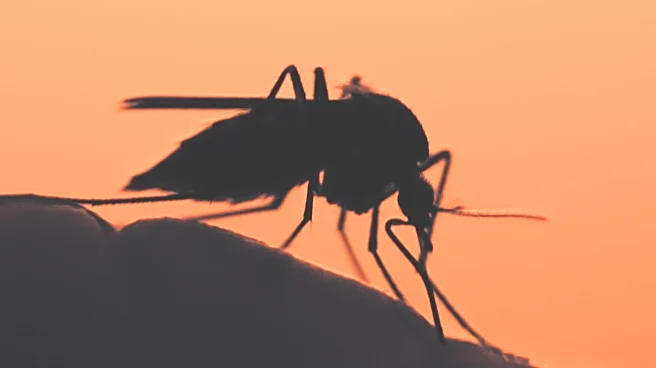What's Happening?
Researchers have developed a self-limiting gene drive strategy called Male Drive Female Sterile (MDFS) to control the malaria mosquito Anopheles gambiae. The MDFS system targets the doublesex gene, causing female sterility while allowing males to transmit
the gene to future generations. This approach aims to suppress mosquito populations by preventing female reproduction, thereby reducing malaria transmission.
Why It's Important?
Malaria remains a significant global health challenge, and innovative strategies like MDFS offer potential solutions for controlling mosquito populations. By targeting the reproductive capabilities of female mosquitoes, this strategy could significantly reduce malaria transmission rates. The research highlights the potential of genetic technologies in public health interventions and vector control.
What's Next?
Further research and field trials are needed to assess the effectiveness and ecological impact of the MDFS strategy. Regulatory and ethical considerations will play a crucial role in the deployment of gene drive technologies. Collaboration with public health organizations and communities will be essential to ensure successful implementation and acceptance.















